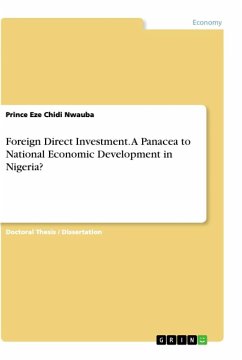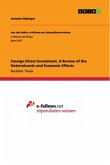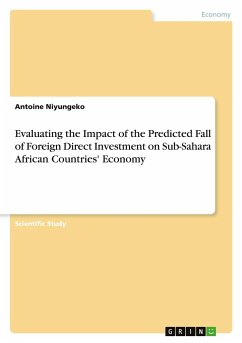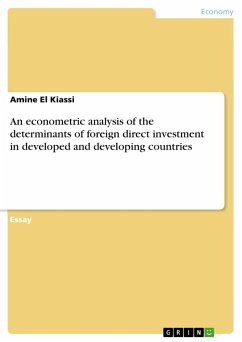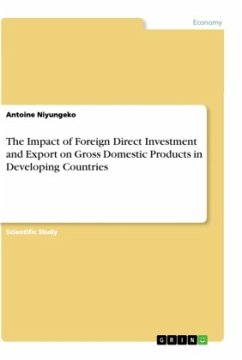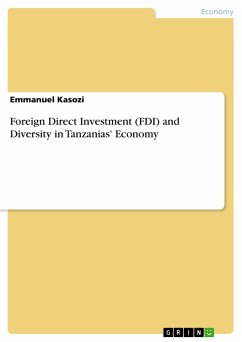Doctoral Thesis / Dissertation from the year 2016 in the subject Business economics - Investment and Finance, , course: Public Administration, language: English, abstract: The study examined foreign direct investment (FDI): a panacea to national economic development. The objectives set for the study are; to determine the causes of the Nigerian economic downturn, to ascertain the effects of foreign direct investment, to suggest measures that would be taken to accelerate the economic development of Nigeria. Primary and secondary data were used; the population of the study was 1200 from which the sample sizes of 400 were determined using Taro Yamani's formula. The research instruments used were questionnaire and oral interview. The reliability of the research instruments was tested using Pearson Product moment correlation coefficient; the result gave a reliability index of 0.98 indicating a high degree of consistency. Chi-square and ANOVA approach were the statistical tools used. The findings from the study reveals that, decline in oil prices and revenue, increase government expenditure and decline in market indices are the challenges posed by economic downturn in Nigeria; consumption-based economy, poor savings, high credit culture and huge financial outflow are the causes of the economic crises in Nigeria; reduction in direct foreign investment and overseas development assistance are the effects of economic crisis to Nigeria and finally, diversification of the economy, robust regulatory policies and professional supervision to aid foreign direct investment in Nigeria. Based on the findings, the researcher made the following recommendation: Nigeria should adopt tough policy measures as effective strategies towards a comprehensive strengthening of the economy, government should ensure that policy recommendations are implemented in order to reposition the Nigerian economy against the impact of future economic downturn, government should create enabling environment to attract foreign investors in order to boost economic activities in the country. Finally, government needs to sincerely focus on developing/strengthening the economy and provide alternative sources of revenue on a sustained basis.

